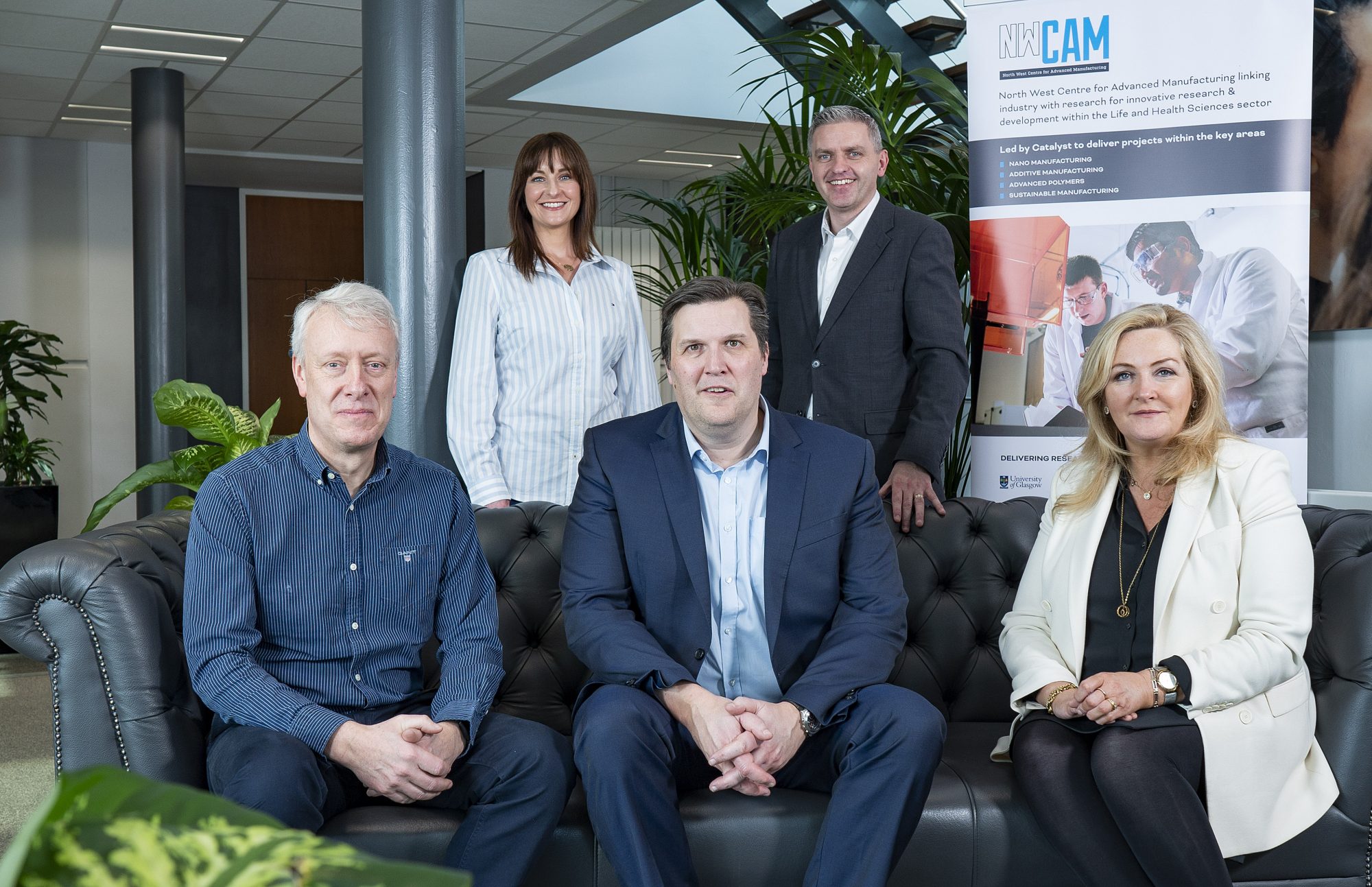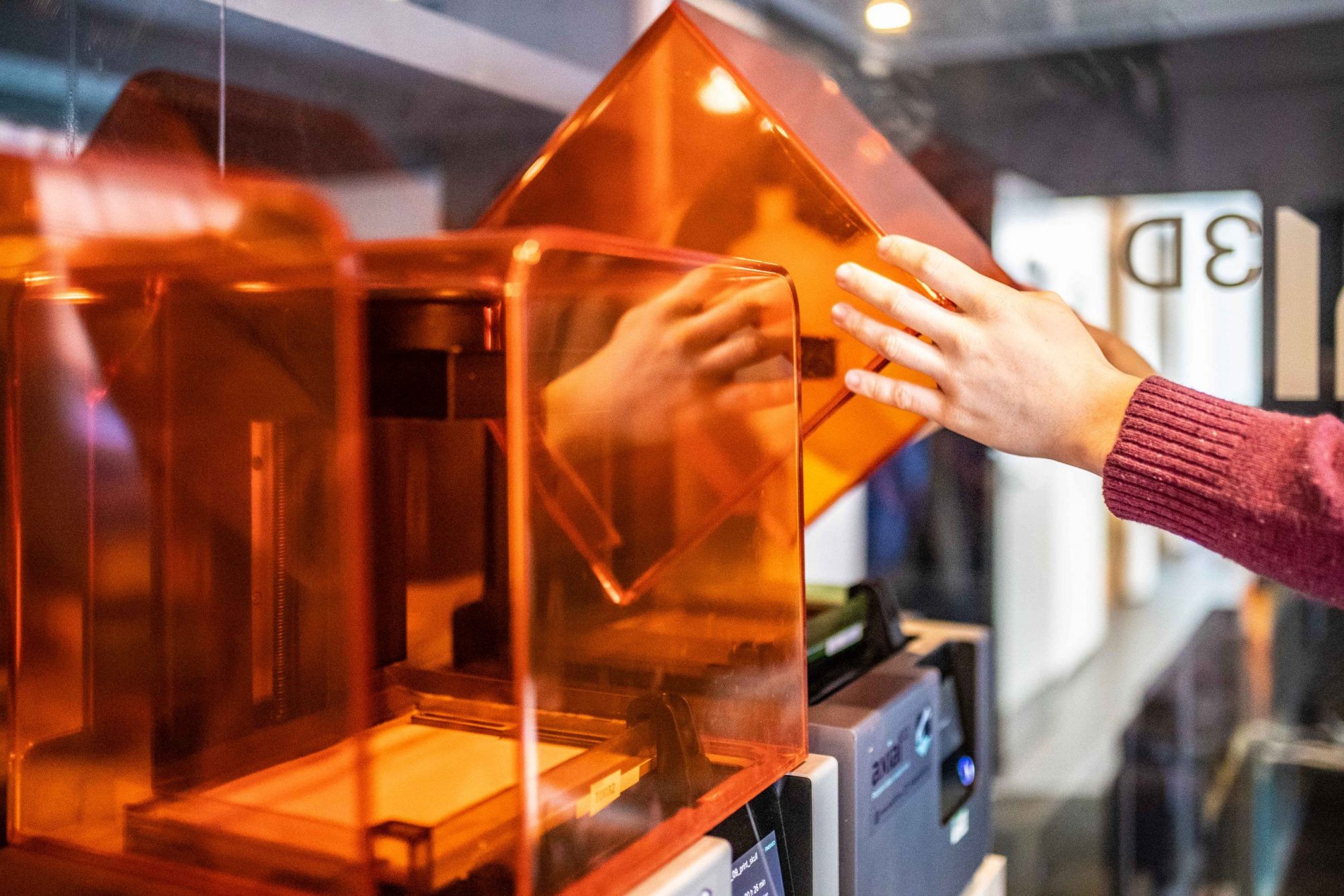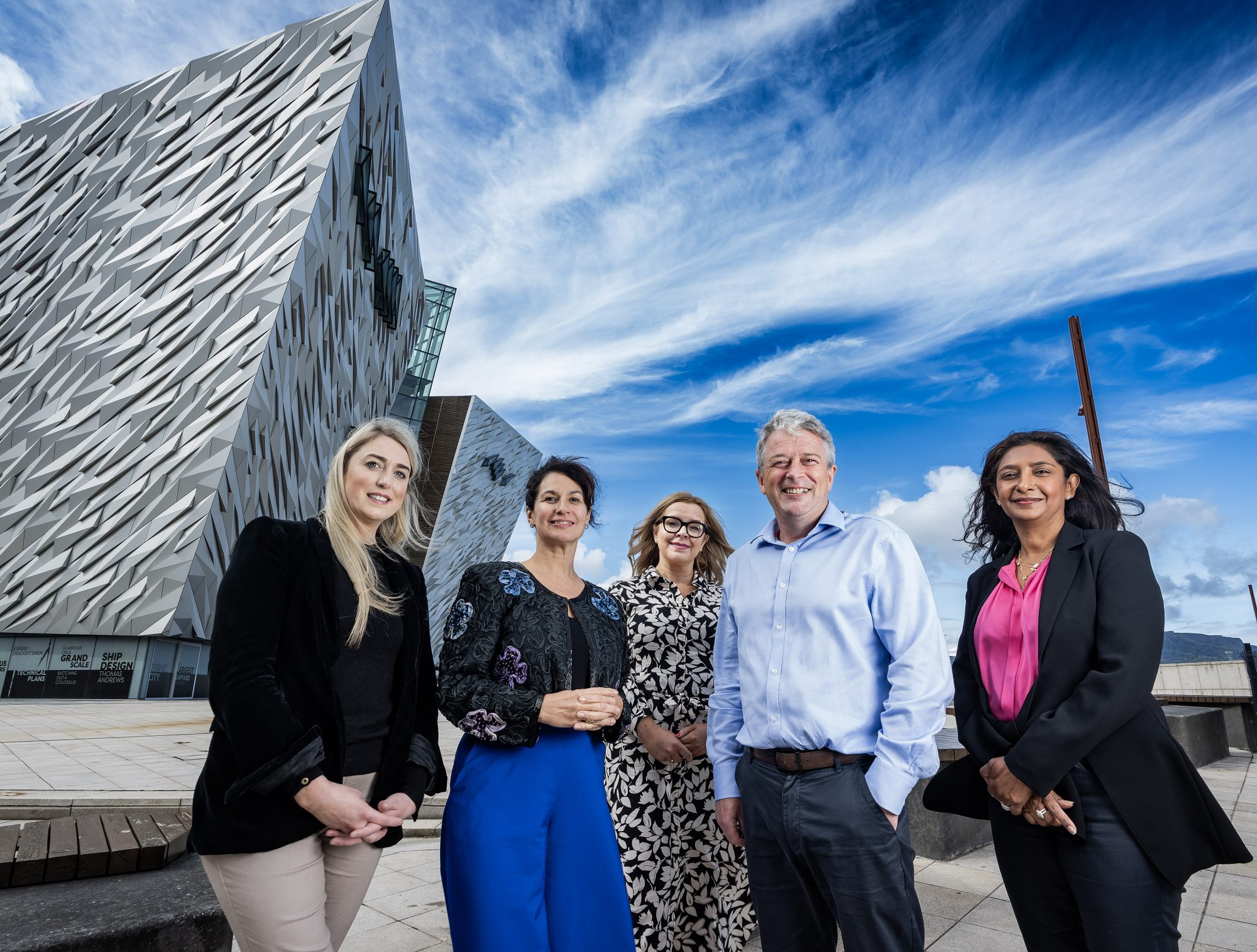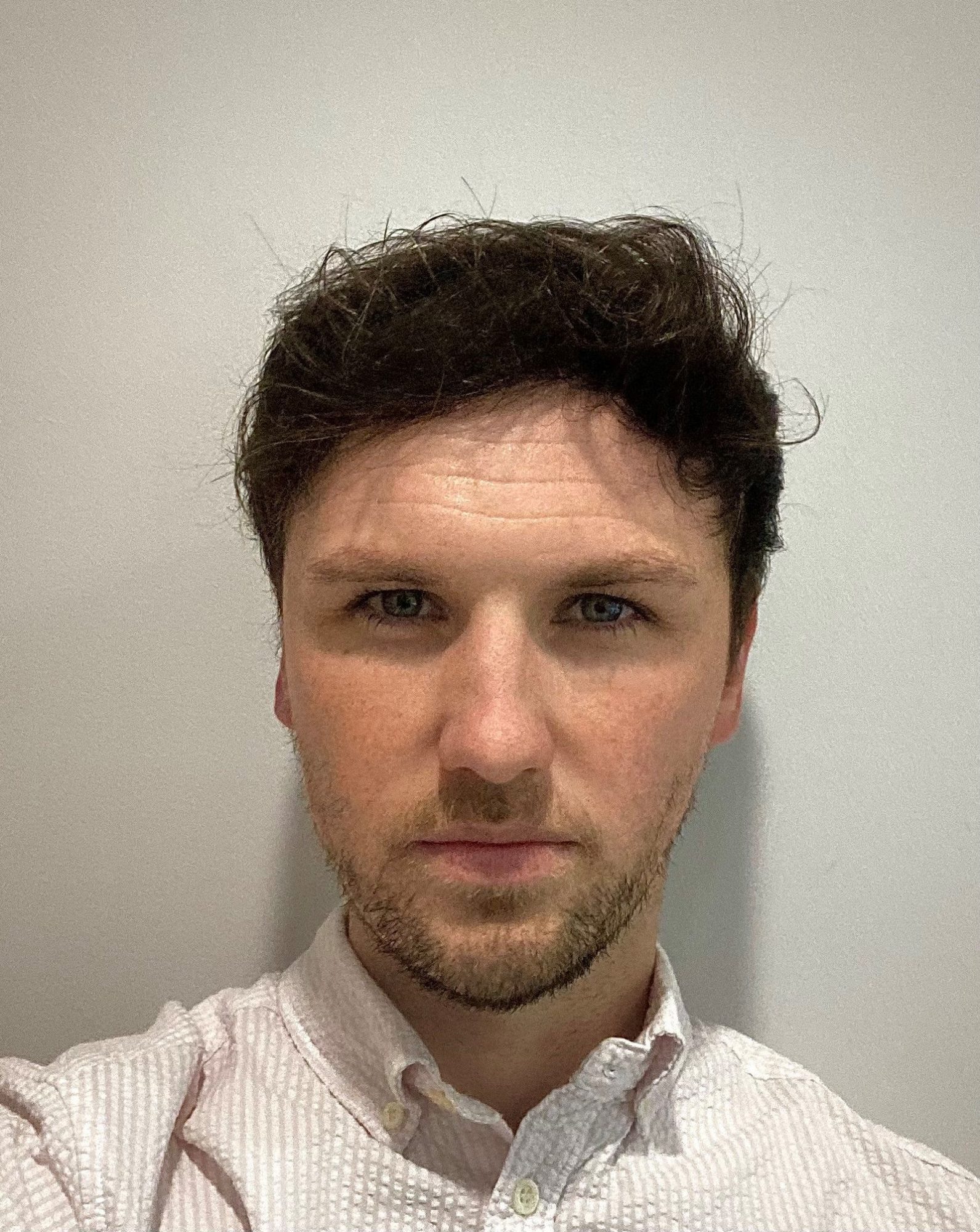North West Centre for Advanced Manufacturing delivers world-leading R&D projects
Sixteen world-leading R&D projects involving more than 50 university researchers and ten innovative companies have been successfully delivered as part of a […]
March 24, 2022

Sixteen world-leading R&D projects involving more than 50 university researchers and ten innovative companies have been successfully delivered as part of a unique collaborative cross border programme funded through the European Union’s INTERREG VA Programme, which is managed by the Special EU Programme Body (SEUPB).
The North West Centre for Advanced Manufacturing (NWCAM) consortium gathered at Catalyst in Belfast yesterday to mark the completion of the project. Established in 2017, NWCAM created an Advanced Manufacturing virtual cluster focused on bringing new technologies to products and processes within the Life and Health Sciences sector.
The focus of NWCAM was to increase levels of cross-border collaboration through research and innovation (R&I). The project set out to increase the number of Life and Health Sciences sector companies engaged in commercially driven, cross-border Advanced Manufacturing R&I and to further evolve the regional economy through the development of new products and/or processes within the Life and Health Sciences sector.
Spanning Northern Ireland, the border regions of Ireland and the West coast of Scotland the cluster has enabled a collaboration which has been independently facilitated and led by Catalyst. NWCAM received €8.7m in funding through the European Union’s INTERREG VA Programme, managed by SEUPB.
The virtual cross-border centre brought applied research expertise and capabilities in Advanced Manufacturing from four world-class research institutions to start-ups, SMEs and multinationals in the Life and Health Sciences sector. The academic capabilities of the project were facilitated through Ulster University, Institute of Technology Sligo, University of Glasgow and Letterkenny Institute of Technology.
These academic institutions collaborated with ten industrial partners that co-designed the research projects: Abbott, Armstrong Medical, Axial3D, Causeway Sensors, Clyde Biosciences, Denroy, GSK, Leckey, Laser Prototypes Europe and Nuprint Technologies.
The cluster provided companies the chance to be at the leading edge of research that benefited them the opportunity to improve their competitiveness and create job opportunities.
The PhD students involved benefited from the cutting-edge methods they experienced first-hand while working alongside the industry partners, becoming skilled in high valued areas such as 3D printing, injection moulding and laser modelling. Throughout the lifetime of the project a full range of PhD training was facilitated by Catalyst to prepare researchers with softer skills useful for their future careers.
NWCAM provided opportunity for real research and development to be carried out and has had a number of notable successes. Involvement with the NWCAM led Armstrong Medical to commercialise an innovative respiratory breathing circuit for life support ventilation that was developed in collaboration with Ulster University. Expanding their range of breathing circuits allowed Armstrong Medical to rapidly respond to global demand during the COVID-19 pandemic. The fight against COVID-19 became a trending theme amongst the consortium as a number of partners used their engineering or manufacturing skills to combat the virus. NWCAM also facilitated a £145,000 small grant investment to five selected industry partners to be able to build on their existing research and development projects, invest in the next stages of commercialisation and move their innovations closer to market.
The NWCAM project is match-funded by both the Department for the Economy (DfE) and the Department of Enterprise, Trade and Employment.
Economy Minister Gordon Lyons said: “The foundations built through this project support our vision for the decade of innovation. The project’s success is testament to the co-design and collaboration across academia, industry, and government, paving the way for projects of the future to build long-lasting change. Taking the fundamentals of the North West CAM project and adapting to incorporate the cluster focus will support my Department to achieve a culture of innovation that benefits everyone.
“I firmly believe that the contribution of investment to the North West CAM project demonstrates my Department’s policy commitment to ensuring that advance manufacturing is at the forefront of the drive to deliver a skilled workforce for a vibrant economy and inclusive society, where everyone can reach their full potential. I am confident that my Department’s approach will ensure innovation & advanced manufacturing is to the fore.”
Tánaiste and Minister for Enterprise, Trade & Employment, Leo Varadkar TD said: “The story of manufacturing on this island is one of incredible transformation and progress. From printing computer manuals to making micro-chips for the world, from producing garments to innovative medicines, the manufacturing industry is unrecognisable to what it once was.
“Collaborative initiatives such as the North West Centre for Advanced Manufacturing, which see industry, research and cutting-edge technology come together to find the next innovation, the next break through, will ensure we continue to keep pace with global advancements.
“Congratulations to all involved for developing lasting research into the field of life and health sciences, these results will help firms in this industry for years to come.”
Gina McIntyre Chief Executive of the SEUPB, said: “The economies of this region unfortunately have a low proportion of high value sectors as well as, low levels of Research & Innovation. The EU INTERREG VA Programme is helping to address this issue by supporting a number of projects which are successfully bridging the gap between academia and industry to help promote greater levels of R&I, on a cross-border basis.
“The NWCAM project has been able to achieve this by creating a new centre of excellence made up of partners from across Northern Ireland, Western Scotland and the border counties of Ireland. It has helped a number of PhD students to translate their ideas into commercial reality and by providing access to equipment and expertise has helped raise the R&I capacity of all its participants. I would like to congratulate everyone involved in the delivery of this project and the successful partnerships that they have been able to develop,” she added.
Steve Orr, CEO at Catalyst said: “NWCAM is a great example of what can be achieved when collaboration between academia and industry is done the right way. The R&D projects that have come out of NWCAM will make a big impact in future and clearly show the levels of innovation and expertise that exist across in Northern Ireland, Ireland and Scotland.”
Professor Alistair McIlhagger (Ulster University), NWCAM Principal Investigator, said: “The partnerships created as a result of NWCAM will build the foundations to apply the NWCAM model to future projects. If anything, the lifetime of the project has reinforced the importance of industry-led research challenges and need for innovation brokerage to make that happen successfully. During the closure event yesterday, it was apparent project success was due to the industry partners who welcomed the research teams into their companies, the research students who dedicated their field of study to tackling these challenges and the world-leading academic researchers who supported and supervised these students along the way.”
For further information on the EU’s INTERREG VA Programme contact John McCandless, Communications Manager with the SEUPB, at: communications@seupb.eu
Special EU Programmes Body
- The Special EU Programmes Body (SEUPB) is a North/South Implementation Body sponsored by the Department of Finance in Northern Ireland and the Department of Public Expenditure and Reform in Ireland.
- It is responsible for managing two EU Structural Funds Programmes, PEACE IV and INTERREG VA which are designed to enhance cross-border cooperation, promote reconciliation and create a more peaceful and prosperous society.
- The Programmes operate within a clearly defined area including Northern Ireland, the Border Region of Ireland and in the case of INTERREG VA, Western Scotland.
- The INTERREG VA Programme has a European Regional Development Fund (ERDF) contribution of €240 million and aims to address the economic and social problems which result from the existence of borders.
- For more information on the SEUPB please visit www.seupb.eu










